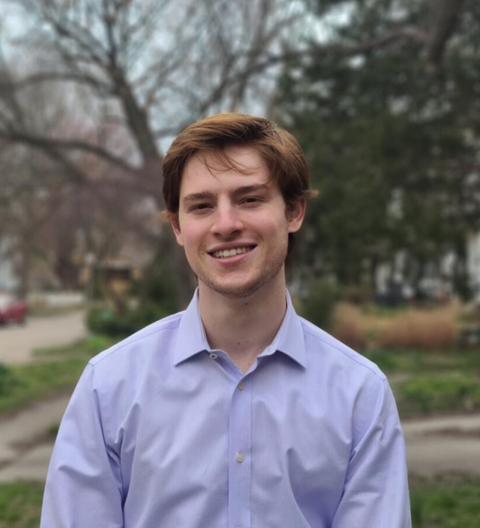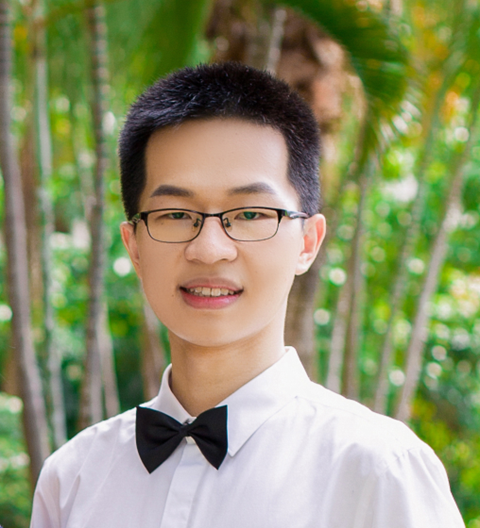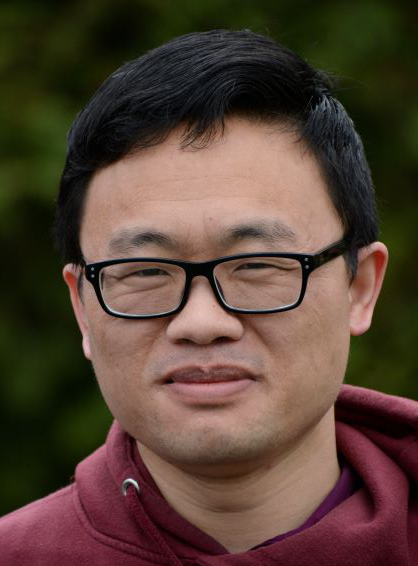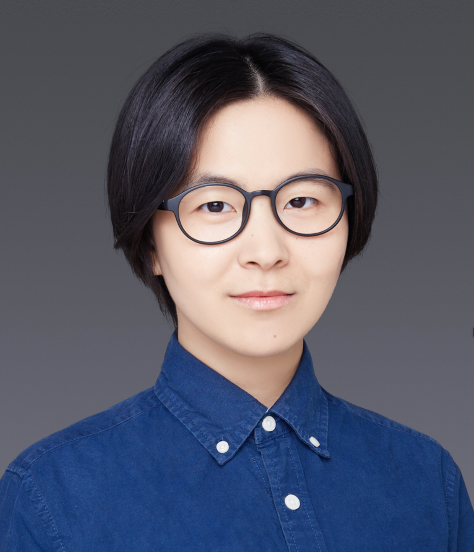Schroeder Summer Graduate Fellowship Program in Political Science
Get Involved
Schroeder Summer Graduate Fellowship Program in Political Science
The Schroeder Summer Graduate Fellowship Program is made possible by a generous gift from William A. and Paul W. Schroeder. The aim of the program is to enhance the quality of rigorous research on topics that fall within on-going research programs at the Cline Center by helping graduate students in Political Science at the University of Illinois generate original and publishable research at an early stage in their graduate career. To achieve these objectives the Schroeder fellowship provides a stipend during the summer covered by the award, office space at the Cline Center, computer support, and access to the Center’s data archives and staff.
Preference for this award is for students who have successfully completed at least two years in the Political Science Ph.D. program at the University of Illinois Urbana-Champaign, although any UIUC political science graduate student is eligible to be considered for this fellowship. In addition applicants are strongly encouraged to propose research projects that utilize or enhance Cline Center data resources (e.g., SPEED civil unrest data, Rule of Law data, the center’s Global News Index).
To learn more about this program please contact Kelly Hammond by email at hammnd@illinois.edu or by phone at 217-265-7845.
Ekin Alpay - Ekin’s research project conducts a descriptive analysis of anti-democratic rhetoric within partisan media, utilizing sentimental variables to trace its evolution. Focused on the coverage of anti-democratic events and the rhetoric surrounding them, the study examines various forms of media content, including speeches and articles. Leveraging the Global News Index of the Cline Center, it aims to discern patterns and trends in the portrayal of anti-democratic events across different media outlets. Her research seeks to deepen understanding of the dissemination and impact of anti-democratic rhetoric within contemporary discourse.
Myung Jung Kim - Myung Jung's research project focuses on how armed actors accused of war crimes and other mass atrocities confront or manage to evade punishment in today's international legal context. In particular, she explores how the increased risk of prosecution under international and universal jurisdiction impacts rebels' operations in foreign territories—previously considered "safe havens"—thereby influencing the operational strategies of rebel groups, the peace process, and the outcomes of conflicts. Specifically, by utilizing the Cline Center's Historical Phoenix Event Data, she aims to examine the dynamics of cross-border violence spillover and the external state sponsorship in supporting foreign rebel groups within an evolving legal landscape.
Alesha Lewis - Alesha’s study will include both statistical analysis of the police force and an analysis of the news coverage surrounding shootings across the US. She plans to examine whether the race of a victim predicts the likelihood of an outcome being fatal with the SPOTLITE data set. Using the Global News Index and the Archer system, she intends to examine articles that cover police shootings and use discourse features to analyze differences in sentiment, depending on the race of the civilians involved. To observe what kinds of shooting incidents generate negative news coverage, she will also search for news stories on protests that were related to police violence against African Americans.
 Zach Jablow - Zach’s project will shed light on potential biases in how mass media around the world use the most extreme categories of political violence. Usage of the terms “genocide” and “terrorism” are hotly contested by political actors and commentators. As political and social theorists have noted, the names attached to acts of violence carry strong connotations in the popular imagination and influence the way we conceptualize and respond to them. Using data from the Cline Center’s Global News Index, Zach will explore the groups and states to which both Western and non-Western news media apply these terms. Drawing on previous research on the framing of political violence in news reports, he hypothesizes that mass media shield their home country and its allies from association with these contested terms of violence while readily and disproportionately applying them to their country’s adversaries.
Zach Jablow - Zach’s project will shed light on potential biases in how mass media around the world use the most extreme categories of political violence. Usage of the terms “genocide” and “terrorism” are hotly contested by political actors and commentators. As political and social theorists have noted, the names attached to acts of violence carry strong connotations in the popular imagination and influence the way we conceptualize and respond to them. Using data from the Cline Center’s Global News Index, Zach will explore the groups and states to which both Western and non-Western news media apply these terms. Drawing on previous research on the framing of political violence in news reports, he hypothesizes that mass media shield their home country and its allies from association with these contested terms of violence while readily and disproportionately applying them to their country’s adversaries.
 Deli Yang - Deli Yang's research project examines the impact of political apologies on post-conflict reconciliation. Apology diplomacy is often seen as a way to address historical grievances, but in reality, questions about sincerity can lead to increased conflict and mistrust. A major limitation of existing research is that it does not distinguish between different levels of sincerity in apologies. To address this challenge, this project uses a new database obtained through the Cline Center’s Historical Phoenix Event Data Project and the Archer system to examine how the nature of apologies affects diplomatic relations, alliance ties, and bilateral trade.
Deli Yang - Deli Yang's research project examines the impact of political apologies on post-conflict reconciliation. Apology diplomacy is often seen as a way to address historical grievances, but in reality, questions about sincerity can lead to increased conflict and mistrust. A major limitation of existing research is that it does not distinguish between different levels of sincerity in apologies. To address this challenge, this project uses a new database obtained through the Cline Center’s Historical Phoenix Event Data Project and the Archer system to examine how the nature of apologies affects diplomatic relations, alliance ties, and bilateral trade.
 Jing Li - Jing Li’s project at the Cline Center will examine the spatial heterogeneity and spatial dependence of social unrest events in China. Social unrest events in authoritarian states like China are rarely known to people outside because of the media censorship of state authorities. However, these events happen at an alarmingly increasing rate and are an important source of information for assessing the political situations of those states. Leveraging the human-in-the-loop event data at the Cline Center, Jing’s research will aim to uncover the spatial-temporal evolution of social unrest events from the end of the 1970s until now.
Jing Li - Jing Li’s project at the Cline Center will examine the spatial heterogeneity and spatial dependence of social unrest events in China. Social unrest events in authoritarian states like China are rarely known to people outside because of the media censorship of state authorities. However, these events happen at an alarmingly increasing rate and are an important source of information for assessing the political situations of those states. Leveraging the human-in-the-loop event data at the Cline Center, Jing’s research will aim to uncover the spatial-temporal evolution of social unrest events from the end of the 1970s until now.
 Tianhong Yin - Tianhong Yin’s project at the Cline Center examines the roles of news reports in civil war diffusion. Existing studies show that civil wars can geographically spread, but they do not address how the information about civil wars is spread when there are no links between rebel groups in proximate states. Using the Global News Index’s data for the Foreign Broadcast Information Service (FBIS) at the Cline Center, Yin seeks to collect data on news reports on civil wars in Africa and examine whether and how news coverage of ongoing civil wars leads to conflict onset in neighboring states. With the data from these news reports, this project seeks to shed new light on the debate on civil war contagion by integrating research in conflict and communication studies.
Tianhong Yin - Tianhong Yin’s project at the Cline Center examines the roles of news reports in civil war diffusion. Existing studies show that civil wars can geographically spread, but they do not address how the information about civil wars is spread when there are no links between rebel groups in proximate states. Using the Global News Index’s data for the Foreign Broadcast Information Service (FBIS) at the Cline Center, Yin seeks to collect data on news reports on civil wars in Africa and examine whether and how news coverage of ongoing civil wars leads to conflict onset in neighboring states. With the data from these news reports, this project seeks to shed new light on the debate on civil war contagion by integrating research in conflict and communication studies.
Shuyuan Shen - Shuyuan Shen’s Cline Center research is in the context of the rise of China as an economic power and the accompanied suspicion and criticism from the West about its authoritarian rule and human rights violations. In response to the regime’s call to tell China’s story well on the global stage, Chinese state and private businesses actively engage in mergers and acquisitions of foreign media and cultural enterprises. Despite the widespread concern raised by such acquisitions, the impact of China’s acquisitions of foreign media has not been systematically examined. This project intends to fill in this blank by examining the impact of China’s acquisitions of foreign media on their coverage related to China. The study contributes both to the literature on China’s soft power and global influence and to the public debate about the political implications of China’s acquisitions of foreign media. You can learn more about Shen's research at https://shuyuanshen.github.io
Hyo-Won Shin - Hyo-Won Shin’s research at the Cline Center will examine the impact of political protests on out-group trust in Myanmar. Shin hypothesizes that individuals who protest in ethnically diverse areas are more likely to come in contact with non-co-ethnic protestors and as a result are more likely to have higher levels of inter-ethnic trust after the event, compared to those protesting in ethnically homogenous areas. To test this hypothesis, Shin plans to collect data in Myanmar using the Cline Center’s Global News Index, and determine the ethnic makeup of the area using locations mentioned in news reports. To measure out-group trust, Shin will scrape tweets with the hashtag #WhatsHappeningInMyanmar containing the word trust or synonyms, and out-group-related words in tweets that also mention ethnic groups and political figures
Lucie Lu - Lucie Lu’s Cline Center project investigates how autocrats use state-controlled media to demonstrate responsiveness and accumulate trust on social media. Lu focuses on China because it employs one of the most rigorous propaganda apparatuses but does not want ordinary citizens to mistrust the information environment. Based on original data collection on Twitter-like Chinese social media and international events in newspapers, Lu seeks to provide evidence that state-controlled media respond to the general public’s demands, shift the public’s aggregated preferences to align with the state, and rally people around international crises.
- HyunJoo Cho
- Kristin Bail
- Tolgahan Dilgin
- Rebeca Joan Agosto Rosa
- Sarah Leffingwell
- Luzmarina Garcia
- Sanghoon Kim
- Ekrem Baser
- Tyler Pack
- Jason Renn
- Julian Scheirer
- Peter Chereson
- Thomas Lassi
- David Bowden
- Paul Testa
- Charlas Waeiss
- Amanda Burke
- Ashley Rundlett
- Kaye Usry
- Amanda Conkhite
- Bryce Reeder
- Matthew Powers
- Svitlana Chernykh
- Matthew Hayes
- Gabe Rodriguez
- Svitlana Chernykh
- Buddy Peyton

